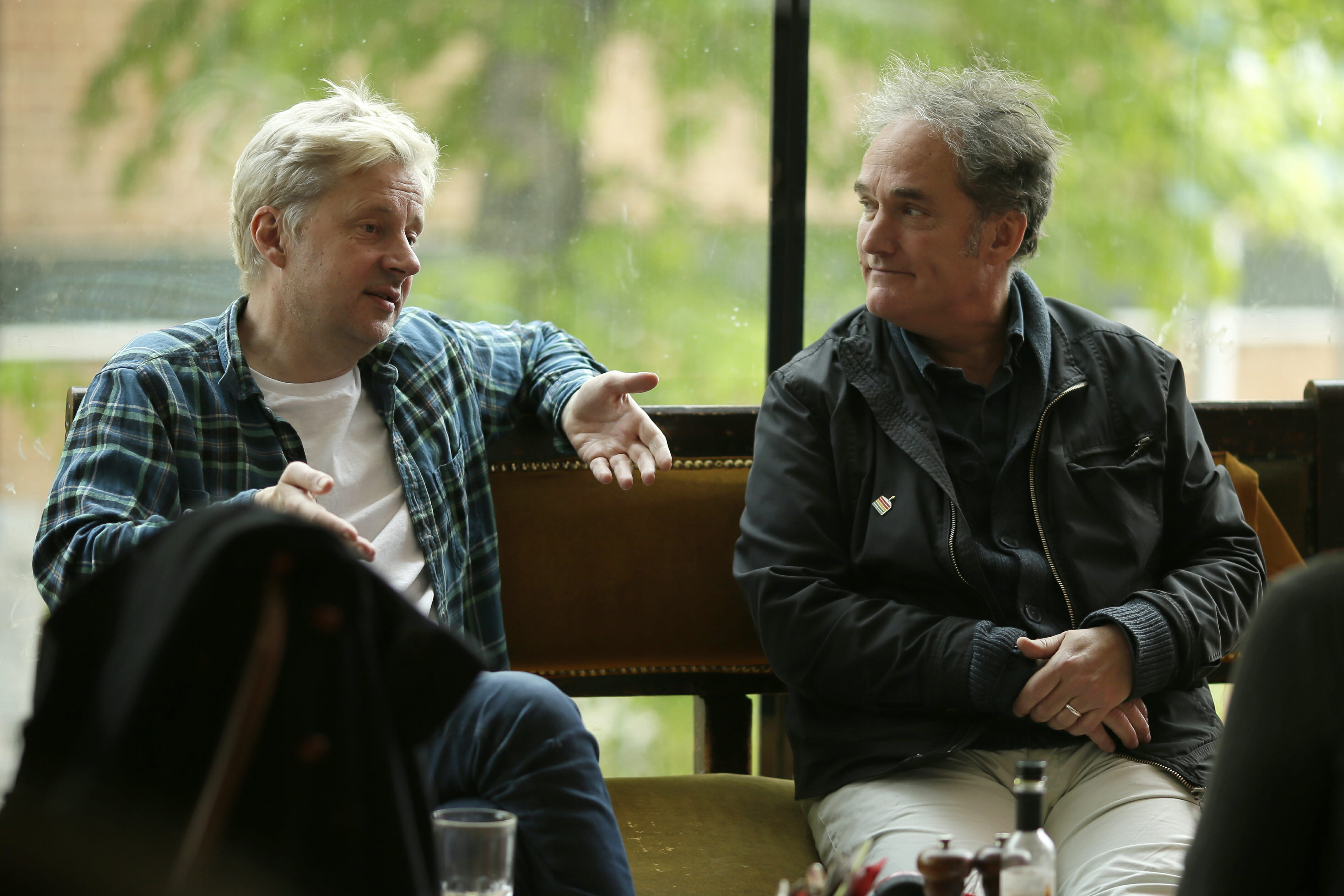
A play about Boris Johnson tries to find humor in Brexit
LONDON (AP) — Is Brexit a tragedy, a comedy — or is it too soon to tell?
A new play running in London tries to grapple with the unfolding Brexit drama, and wring laughs from it at the same time. “The Last Temptation of Boris Johnson ” centers on a key figure in the saga: Britain’s rumpled, Latin-spouting former foreign secretary.
The blond Conservative with the popular touch played a major role in persuading voters to back Brexit — and could be Britain’s next prime minister. Johnson confirmed Thursday that “of course I’m going to go for it” in a contest to replace Prime Minister Theresa May that’s expected within months.
Playwright Jonathan Maitland says Johnson “was the one who made the difference between the 48 and the 52” — the percentages for remaining and leaving respectively in the June 2016 referendum on EU membership.
Actor Will Barton, who plays Johnson, says it’s easy to see his appeal: People “see what they think is authenticity” in Johnson’s gaffes and bumbling demeanor. Whether it really is authenticity or skilled artifice is beside the point.
“He’s always entertaining,” said Barton, who with bleached and tousled hair makes a spookily convincing Johnson. “You always know if you’re going to watch Boris, it’s going to be worth watching, even if you don’t agree with him. He’s a colorful character. People don’t like gray politicians.”
Maitland’s play, running at London’s Park Theatre until June 8, contrasts Johnson’s buffoonish exterior with the intensely ambitious politician underneath. It opens with a 2016 dinner party attended by senior politicians and a media mogul at which the wavering Johnson decided to support the “leave” side in the referendum.
In the play, he’s helped to make up his mind by visits from the spirits of former prime ministers Winston Churchill, Margaret Thatcher and Tony Blair, who bicker about Britain’s place in Europe, and taunt Johnson with glimpses of the thrill of political power and the pain of its loss.
The second act flashes forward to 2029 to show what happened to Johnson, and Britain, after the country’s eventual exit from the EU. As it opens, Johnson has done a reverse-Donald Trump: He has left politics and become host of the British version of “The Apprentice.”
A lot has happened in real life since Maitland began working on the play last year. In July, Johnson quit as foreign secretary to May’s plan for Brexit. He has since become favorite to replace her when she leaves office — likely within months.
One big thing has not happened. Maitland, like everyone else, thought Britain would have left the EU before this week’s opening night. But with Britain’s politicians deadlocked over exit terms, the EU has set a new Brexit deadline of Oct. 31.
That sense of events in flux may be one reason Brexit has produced a relatively small crop of artistic responses in Britain. This year’s TV drama “Brexit: The Uncivil War,” starring Benedict Cumberbatch, looked at the contentious social media campaigning by the victorious “leave” campaign.
Ali Smith’s novel “Autumn,” published in late 2016, caught the mood of a divided post-referendum Britain: “All across the country, people felt it was the wrong thing. All across the country, people felt it was the right thing. All across the country, people felt they’d really lost. All across the country, people felt they’d really won.”
Smith followed it with two more state-of-the-nation novels, “Winter” and “Spring”; “Summer” is on the way.
One of the few other stage treatments of Brexit is John Godber’s play “Scary Bikers,” which imagines a “leave” supporter and a remainer on a European cycling holiday.
“I don’t know why there aren’t more plays approaching it head-on,” Maitland said.
“The character of this country has changed so much in three years. If you want to write plays about what’s happening now you cannot ignore that.”
Like most people working in the arts in Britain, Maitland voted to remain in the EU, but now thinks “the most important principle is to abide by the result of the referendum.”
He shrugs off the flak he has received for giving Johnson even more attention, arguing that his play amounts to “forensic publicity.”
“I don’t know whether Boris Johnson will go down in history as a great man, but he’s already had an extraordinary effect on history. That’s worth a play,” said Maitland, whose previous plays looked at the fall of Thatcher and the crimes of late pedophile BBC star Jimmy Savile.
He hopes the play will appeal to — and annoy — people on both sides of the Brexit argument.
“I’d love people to come out really offended and really angry,” he said. “As long as they’re not bored.”
___
Follow Jill Lawless on Twitter at http://Twitter.com/JillLawless
The Western Journal has not reviewed this Associated Press story prior to publication. Therefore, it may contain editorial bias or may in some other way not meet our normal editorial standards. It is provided to our readers as a service from The Western Journal.
Truth and Accuracy
We are committed to truth and accuracy in all of our journalism. Read our editorial standards.
Advertise with The Western Journal and reach millions of highly engaged readers, while supporting our work. Advertise Today.












